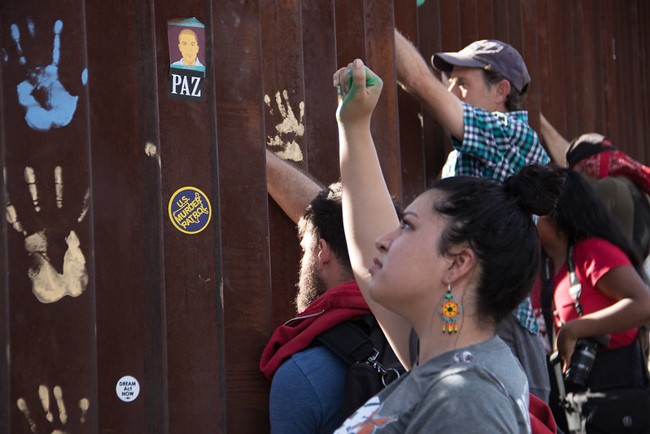We find ourselves in a precarious moment for the right to seek asylum in the United States. While advocates continue to push for more inclusive and welcoming state and local policies for immigrants, refugees, and asylum seekers, the fundamental right to seek safety in the U.S. continues to be at grave risk. Though last month’s U.S. Supreme Court decision cleared the way for the Biden administration to rescind the inhumane Migrant Protection Protocols (MPP), also known as “Remain in Mexico,” an array of cruel and ineffective asylum and immigration policies still stand, foremost among them Title 42. While the Court’s ruling is in part a victory for the right to seek asylum in the U.S., most asylum seekers at the U.S.-Mexico border are still being expelled under Title 42.
Title 42 – a Trump-era policy invoked under the guise of protecting public health during the Covid-19 pandemic – allows authorities to quickly expel migrants at the border without giving them a chance to seek asylum under U.S. law. In April, the Biden Administration announced it would end the policy, but several states immediately sued to block its termination. Since both Title 42 and MPP will likely be tied up in litigation for months or even years, advocates are calling on Congress and the administration to use all the tools at their disposal to immediately end MPP, Title 42, and all policies that endanger asylum seekers.
While these battles play out in court, the immigrant justice movement continues to fight to protect the right to seek asylum and ensure a safe, humane, and effective asylum system.
Philanthropy can help by supporting key strategies used by immigrant justice organizations, including:
- Litigation: Advocates are using litigation at all levels of government as a tool to protect and expand immigrant rights. This work needs ongoing support beyond efforts to end specific policies like MPP and Title 42. To do this, organizations need support to build legal, research, and policy capacity.
- Organizing: Bringing affected communities and their allies together to build power, agitate for change, and work toward a more just and equitable world is critical. Organizations need sustained, flexible support so organizers and their communities can participate in specific campaigns as well as in the larger immigrant rights movement and other movements for social justice.
- Narrative Change: Anti-immigrant sentiment leads to anti-immigrant policies. Advocates are developing positive narratives about immigrants and are working to transform the broader narrative context while combatting false and harmful narratives. Investing in message testing and strengthening the communications capacity of immigrant justice organizations is an essential part of narrative change.
Leading immigrant rights organizations in the #SafeNotStranded Campaign are advancing all of these strategies. Here at GCIR we are hosting a program on strengthening the immigration legal services infrastructure on July 20th as a follow-up to our recently released report Immigration Legal Services in California: A Time for Bold Action. As we roll out our new public policy agenda, ending Title 42 and MPP are among our key priorities. We will continue our commitment to ensuring that those seeking safety are welcomed no matter where they were born.
Photo by Peg Hunter on Flickr
